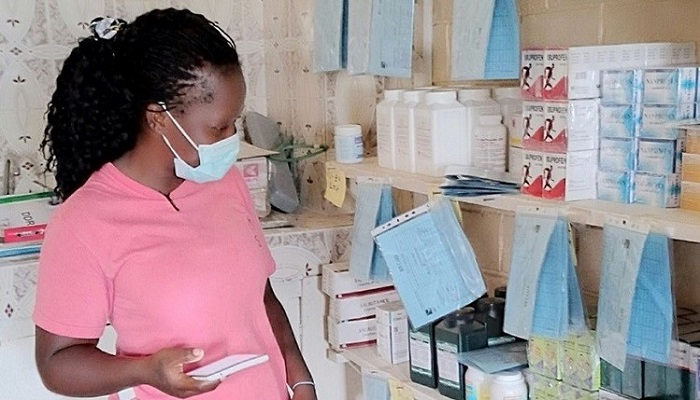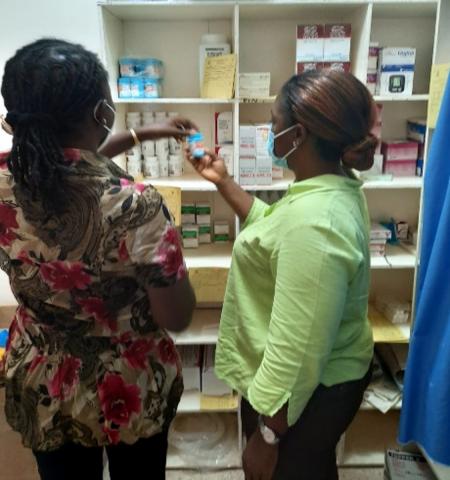GHSC-PSM worked with the NACP to directly identify issues surrounding reporting of ARV dispensing records and stock status. During in-person reviews, it became apparent health facility workers had limited knowledge around supply chain data collection tools for HIV commodity management. From October 2019 to December 2020, the project mentored 51 healthy facility staff (ART focal points, storeroom keepers and facility supply chain reporting officers) within the 17 health facilities through monthly supervision visits on use of the electronic logistics management information system (eLMIS) and Daily Dispense Record (DDR) tools. GHSC-PSM staff discussed reporting challenges with storeroom keepers and dispensers who then encouraged to suggest solutions in resolving them. Instead of imposing a timeline on health facility staff, the project worked with staff to establish a reporting timeline that worked best given their other health area reporting responsibilities. As a result, reporting begins on the 25th of the month and staff are expected to submit reports by the 5th of the following month.
Mentorship is focused on:
- When to trigger an emergency supply request.
- How much to order
- Recommended channel for emergency request.
- How to maintain an appropriate stock level of all HIV/AIDS products.
As a result, health facility staff have taken ownership of the process and are committed to supply chain data collection and reporting at service delivery points by using the eLMIS. Fifteen out of 17 facilities are now providing timely HIV commodity reports while GHSC-PSM continues in a more supportive role through, for example, monthly mentoring. Currently, timely stock status data, number of clients on treatment and enrollment status are being regularly monitored by the project, Ministry of Health and NACP to guide appropriate HIV commodity resupply decisions and all 17 PEPFAR-supported health facilities now maintain sufficient stock of tenofovir/lamivudine/dolutegravir (TLD) – the preferred first-line ARV – to transition eligible patients and carry out multi-month dispensing.

